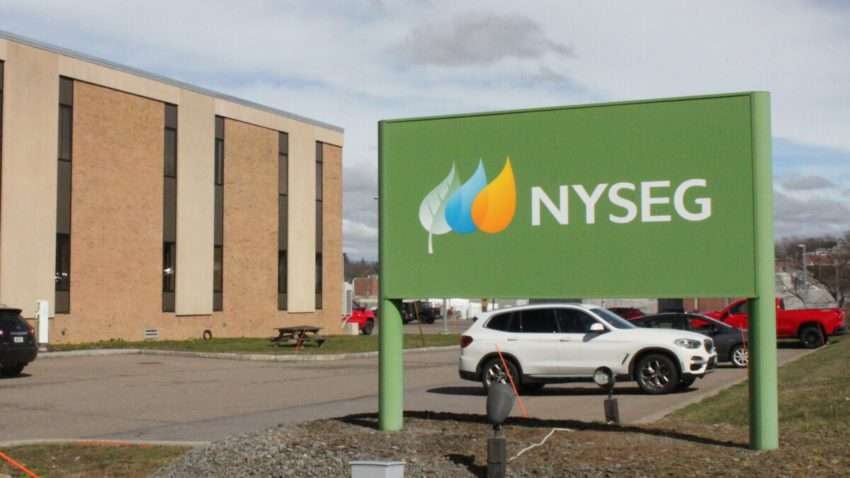Residents across upstate New York could soon see a sharp rise in their utility bills. New York State Electric & Gas (NYSEG) and Rochester Gas & Electric (RG&E), both subsidiaries of the multinational utility giant Avangrid, have submitted proposals for one year rate increases that could raise average monthly bills by more than 30% for some customers.
The utilities say the hikes are necessary to address aging infrastructure, regulatory compliance, and financial pressures. But the proposal has sparked a wave of backlash from consumer advocates, elected officials, and even state regulators, who are questioning whether these increases are justified—or even fair.
“These companies are requesting increased rates at a time when they’re already facing a lot of criticism for the current cost of service,” said Liam Mayo, reporter for The River Reporter, in an interview discussing the developments. “People already saw big spikes in their utility bills this past winter, and now this proposal adds insult to injury.”
Under the one-year proposal covering May 1, 2026 through April 30, 2027, NYSEG customers could see an average electric bill rise from $139 to $172 per month—a 23.7% increase. Some increases, depending on service and customer usage, could reach or exceed 33%.
The companies say the increases are unavoidable. In filings submitted to the New York State Public Service Commission (PSC), NYSEG and RG&E cite several drivers for the proposed hikes: long-overdue infrastructure upgrades, compliance with evolving state regulations, and limited access to capital markets due to poor credit metrics.
But critics are skeptical.
A recently released audit commissioned by the PSC found significant management and operational deficiencies within both utilities. The audit, completed in February but made public more recently, found that corporate decision-making at the parent company, Avangrid, has interfered with the operations of NYSEG and RG&E. The report concluded that Avangrid often prioritizes profits and shareholder returns over infrastructure investment and customer needs.
In response, the utilities complained that the audit presented an “overwhelmingly negative tone”—a rebuttal that has done little to reassure some skeptical stakeholders.
Representative Josh Riley, who represents New York’s 19th Congressional District, condemned the proposal as “a slap in the face,” and vowed to fight it. “We’re talking about a foreign-owned monopoly raking in massive profits while failing over 100 basic operational functions,” Riley said.
State Senator Peter Oberacker went further, calling the proposal part of a “pattern of abuse” and saying it’s long past time that the companies be held accountable.
The PSC will now evaluate the rate proposal and determine whether to approve it, reject it, or settle on a modified version. Historically, regulators have often approved smaller increases than those requested. Public hearings and comment opportunities are expected in the coming months.
As Mayo notes, the situation may reflect a broader challenge in New York’s energy landscape. “We’re seeing utilities operating under outdated infrastructure and complicated corporate structures, all while ratepayers are left to foot the bill,” he said.


Even though i refused the new smart meter, my bill has gone from $ 120 a month to $ 194. A month. I am on social security disability and make $1200. A month
My service delivery charge is already more than my usage!!! Enough is Enough!!!
My bill is now $2000 and they don’t do their job as far as reading the meters we have to do it ourselves and if we don’t they guesstamate our bill.
I’m on social security and I went on a budget and finding out your only on the budget for 1 year and they never said anything to me about that and now there saying that I owe an outstanding bill over $500 and how is that right going them not to say that your budget had stopped I think that the public utilities commission should make the electric company’s pay
Greed! This is BS…im selling I am done!
The PSC has failed to do their job when it comes to regulating and enforcing the utility companies and their massive profits. Furthermore, since Avangrid is owned by Iberdrola, a Spanish owned multinational company, there is little to no transparency as a means to hold them accountable. The companies reward their shareholders, while the consumer is left to cover the costs of infrastructure improvements. There is something dystopian about the fact that soon, no one except for the very rich, will be able to keep their lights on.
Welcome to the new Gilded Age, peasants.
In my opinion, it would be helpful if NY utility companies were allowed to show the cost of the climate mandates separately. I do not think that many NY residents understand the cost of eliminating fossil fuel. If people don’t like these rate increases, the probably will not like the cost increases that will eventually come with the enactment of the “Cap and Invest” program.